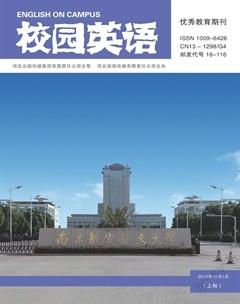Review of Language Learning Strategy
林毅媛
【Abstract】In the process of foreign language learning, students should learn more effectively by using more proper learning strategies. In this passage, some relevant theories will be reviewed, including definition, classification and importance of learning strategy based on different researchers theories.
【Key words】Review; Language
With the shift from teacher-centered teaching model to the student-centered learning model, it has become popular to improve study by learning and using more effective language learning strategy (hereafter LLS), especially when learning second language .
Some researches began in the middle of 1970s have different opinions on the definitions and classifications of LLS. Based on these theories, Ellis (1994)reaches a conclusion: LLS is techniques, methods and actions which language learners use and take in the process of language learning to make their study effective. LLS refers to both external and internal actions. On the one hand, it means those macro strategies applied to plan, value the study goal, process and results; on the other hand, it is the strategy used to complete some specific study task. In his opinion, LLS are specific physical or mental actions students take to improve their second or foreign language learning skills with the aim to achieve successful learning.
The classifications are diverse in different researchers view. The following are some typical ones.
Based on the theory of information processing, O'Malley and Chamot (1990)classify LLS into three main groups with several specific strategies under each of them: meta-cognitive strategies, cognitive strategies and social/affective strategies.
Meta-cognitive strategies refers to mental activities, such as making plan before starting learning, monitoring the process of completing learning tasks, and evaluating whether he has learned effectively. Cognitive strategies are used by learners to associate the newly-learned language knowledge with the old materials in their minds, including repetition, resourcing, translation, grouping, note taking, deduction, recombination, imagery, auditory representation, key word, elaboration, and transfer. Social/affective strategies provide learners with more accesses to the language, such as cooperation, question for clarification and so on.
Based on the relationship between LS and language materials, Oxford(1990)puts LLS into two categories: direct and indirect strategies. In his point, direct and indirect strategies are manipulated in the same level. The direct strategies include memory, cognitive and compensation strategies, which directly involve the language being learnt. And, the indirect strategies involve meta-cognitive, affective, and social strategies, which are of great importance in language learning though they maybe not directly involved in the process of learning.
According to the goal orientation, Cohen(2006)divides LLS into two groups: strategies for language learning and strategies for language use. Strategies for language learning are those used in the learning process directly for learning the target language, including identifying the material that need to be learned, distinguishing it from other materials, grouping it for easier learning, contacting repeatedly with the material and committing it to memory in a formal way. Strategies for language mean those used to practice the language after learners have acquired some new knowledge. They consist of retrieval, rehearsal, cover and communication strategies.
Some relevant surveys shows that, there are some differences in the LLS use between the high-scoring and low-scoring groups. The former group tends to use strategies more often than the latter group and different groups like to use different strategies. Therefore, on the one hand, teachers are supposed to have learners know more about the LLS and training them to use those strategies. On the other hand, learners should improve their study by knowing which LLS is suitable for them and helpful for language learning and therefore use those strategies.
References:
[1]Ellis,R.1994.The Study of Second Language Acquisition.Oxford: Oxford University Press.
[2]O'Malley,J.& Chamot,A.1990.Learning Strategies in Second Language Acquisition.
[3]Cambridge: Cambridge University Press.
[4]Oxford,R.L.1990.Language Learning Strategies: What Every Teacher Should Know.New York: Newbury House Publishers.
[5]Cohen,A.D.& Weaver,S.2006.Styles-and-Strategies Based Instruction: A Teachers Guide.Beijing: Foreign Language Teaching and Research Press.

